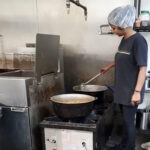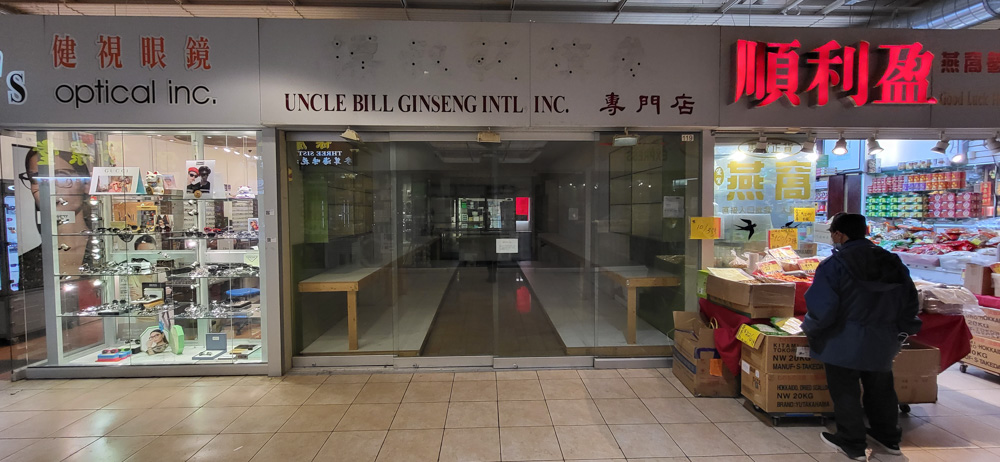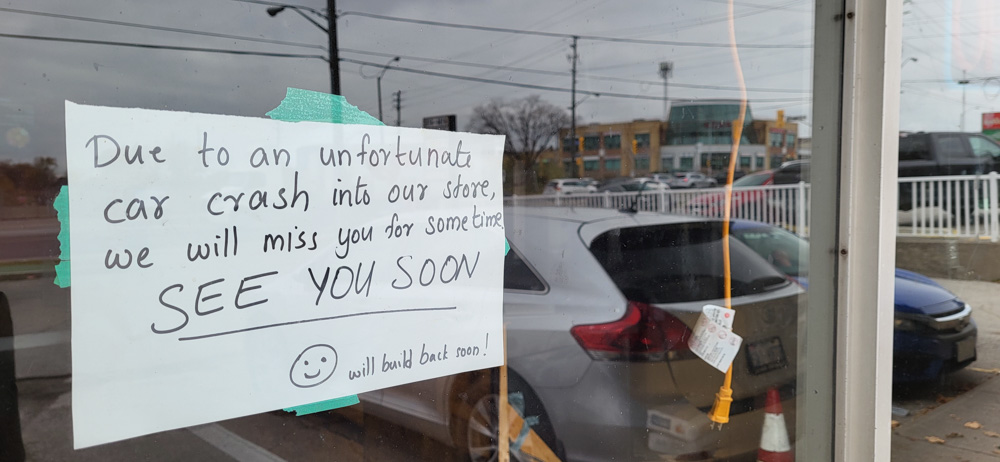From Surviving to Thriving
Asian communities across the city were no strangers to hardships throughout Canadian history. But, the COVID-19 pandemic shook the world, testing the resilience of the diverse communities in Scarborough.
We didn’t actually open at all so for us from March till September, we were just paying the rent and it’s because our main chefs were 70 plus and there was no vaccine and we didn’t want to get them sick.
– Keerthana from Muhadam Vegetarian Catering
Keerthana Nagaratnam from Muhadam Vegetarian Catering discusses her eagerness to find ways to connect, learn and strengthen her community. Enjoy this audio clip with an English Transcript.
The COVID-19 pandemic made things even harder for Asian businesses in Toronto. Some people unfairly linked the virus to the Chinese community, which hurt businesses. Some business owners had to send their staff on long vacations because they weren’t making enough money. For many business owners, like Harvey Lin from Marathon Café, their employees are like family. Instead of letting them go, he, like many other owners, chose instead to suggest they take vacation time until further notice. Even the Lunar New Year celebrations at Dragon Centre Mall had fewer people attending because of fears about the virus.

Eva Lin, an employee at Great Fountain Fast Food in the Dynasty Centre food court serving up online orders during the busy lunch hour.
Even before the COVID-19 pandemic, businesses faced challenges due to outdated practices like cash-only transactions or no way to order food or goods online. During the COVID-19 pandemic, many businesses almost closed if they didn’t change.
Anna from Great Fountain Fast Food Restaurant reflects on how the COVID-19 pandemic changed the nature of food service and how the restaurant’s loyal customer base kept them in business. Enjoy this audio clip with an English Transcript.
During this difficult time, the community bonded together. Chinese businesses across Toronto received support from important public figures like Dr. Gary Newton, President of Sinai Health System, and Mayor John Tory. They urged the City to stand by Chinese businesses in this global health crisis. To adapt to changing times, food business owners have had to change the ways they run their businesses. They had to ask themselves difficult questions like how they can better connect with each other and learn new skills to support their businesses.
Many restaurants in Agincourt joined popular online ordering applications and hired delivery employees to serve the customers who wanted to enjoy the familiar flavours of their cultures at home. These changes helped many restaurants in Agincourt survive the COVID-19 pandemic, keep cultural bonds alive, and support the local economy.
Even after we closed, [our customers] still touch base with us. They still ask us if there were any celebrations or if I still do catering. It’s a very close, family oriented community.
– Keerthana on the care from the community during the COVID-19 pandemic
Despite all these challenges, Chinese community members stayed strong. They worked hard to change how their businesses operated just to survive the tough times caused by the COVID-19 pandemic. They kept pushing forward, preparing themselves for the racism, xenophobia, discrimination and harassment that would harm them more than the Coronavirus would.
[Our business] is expanding very well and now we are planning to move to a bigger location. So we might stop production here and move to a bigger location, but we will [certainly] continue with the restaurant.”
– Rama from Ruchi’s Take-out & Catering restaurant on the success of the business and plans to expand




